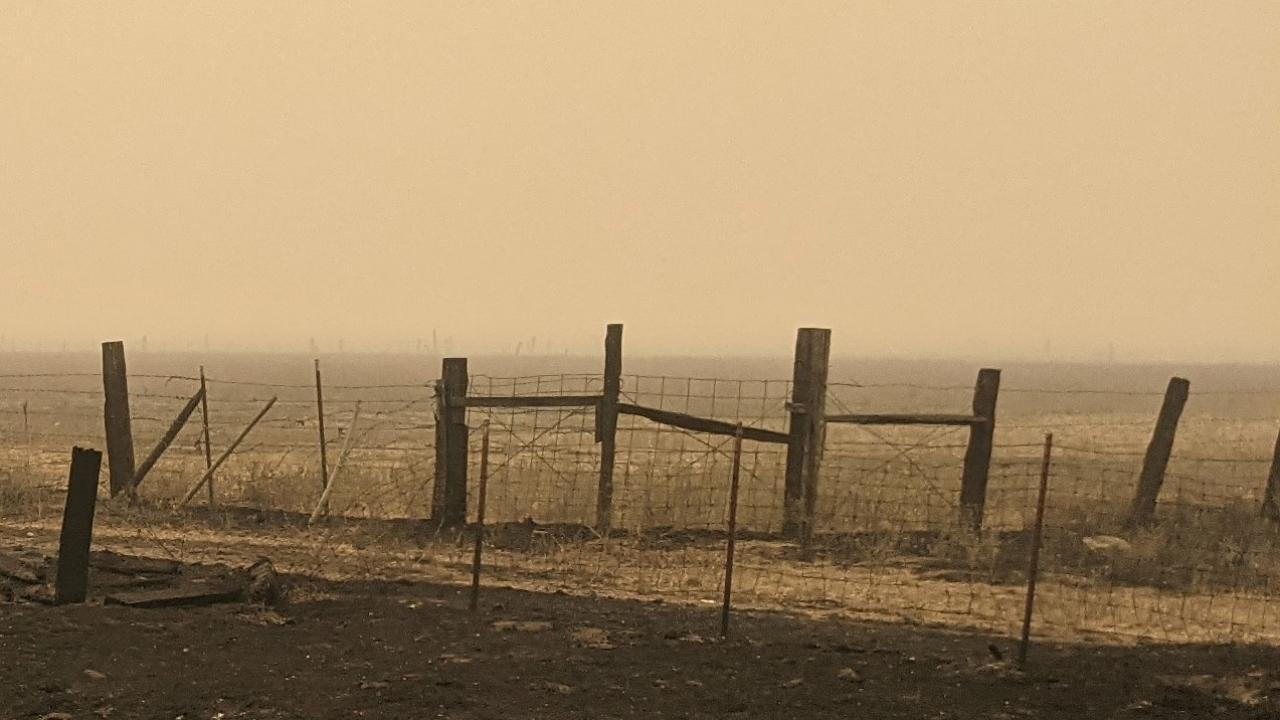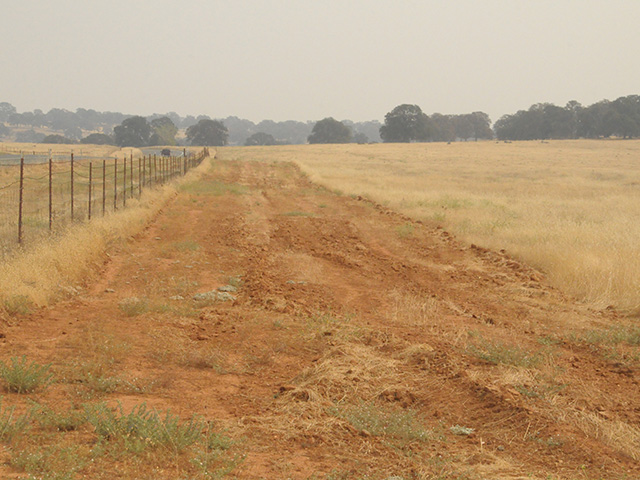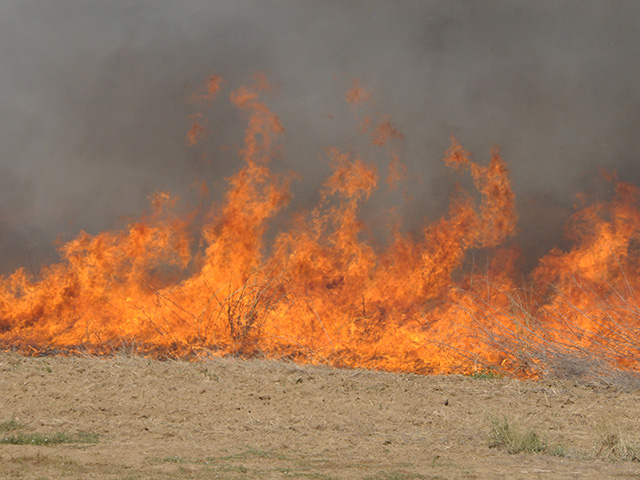
Wildfire takes toll on mental, physical health of our food producers
Farm Bill could support awareness of help available

The people who produce our food need support -- especially in the areas of mental and physical well-being -- to recover from increasingly widespread wildfire, scientists have found. The federal Farm Bill could help, but it is languishing in Congress.
Postdoctoral researcher Natalia Pinzon Jimenez used surveys to hone in on the experiences of ranchers and farmers impacted by wildfire. Pinzon recently earned her Ph.D. at UC Davis and produced her findings with a team that included Leslie Roche, a professor of Cooperative Extension in the Department of Plant Sciences.
The team surveyed more than 500 ranchers and farmers affected by wildfires between 2017 and 2023. Pinzon recently summarized her findings in this research report. She also recently launched a website, Wildfires & Agriculture, based on her findings. Its goal is to help producers become more resilient to fire by providing tools, improving research and effecting policy.
Financial and technical assistance also matter, but are secondary, said the producers who participated in the surveys.
“The No. 1 wildfire impact for ranchers is on their physical and mental health,” said Tracy Schohr, a research team member and livestock and natural resources advisor in Plumas, Sierra, and Butte counties. (Schohr earned her master’s degree with Ken Tate, also a professor of Cooperative Extension in the department.)
“This underscores the need for future United States Department of Agriculture disaster programs to prioritize physical and mental health and emphasizes the importance of USDA investment in training staff and partners in trauma-informed approaches to aid farmers and ranchers affected by disasters,” Schohr argued.
In addition to being scorched by wildfire, farmers and ranchers are on the front lines of wildfire response, both on their properties and in their communities. When it’s not wildfire season, they manage future risks by reducing fuel loads on their properties, installing off-grid systems and water storage, planning for wildfire response and training employees, Pinzon reported.

Need for greater awareness of help available
While producers were optimistic about their chances of recovering from wildfire, Pinzon found they have a limited financial safety net supporting them. Most producers relied on personal savings to recover from significant losses. Small producers, those using organic or sustainable practices, beginning producers, first-generation producers and people renting their land all had fewer resources, including crop insurance.
In addition, 78 percent of farmers and 58 percent of ranchers did not use financial assistance offered through the USDA to cope with disasters, Pinzon reported. Many didn’t even know such assistance is available, or they reported the application process was too difficult.
All those pressures led to a quarter of the respondents admitting they had considered shutting down their operations.
Pinzon pointed to the federal Farm Bill -- currently stalled in Congress -- as a source for funding greater collaboration between the USDA and on-the-ground organizations such as Cooperative Extension. The aim would be “to raise awareness, expand access to assistance programs and provide science-based solutions for wildfire recovery,” Pinzon recommended.
Surveys lead to more insights
Pinzon’s work is part of a larger, statewide effort to use surveys and interviews with ranchers and farmers to understand their needs, direct scientific inquiry and develop solutions to their problems.
The team includes the University of California, UC Agriculture and Natural Resources, federal, state and local agencies, producer organizations and private individuals. The surveys go back to 2011 and were conducted by Roche and a network of colleagues.
- Read about California ranchers’ response to drought and their needs for staying strong here.
Learn what you can do!
You can prepare for wildfire on your land! Get free, online information through Farmer Campus, co-founded by Pinzon with support from the USDA. Start by downloading your Wildfire Preparedness Workbook here. It includes practical, hands-on activities to help you get your operation ready to survive a fire.

A grassland fire in California. (Tracy Schohr/UC ANR)
Media Resources
- Trina Kleist, UC Davis Department of Plant Sciences, tkleist@ucdavis.edu, (530) 754-6148 or (530) 601-6846
